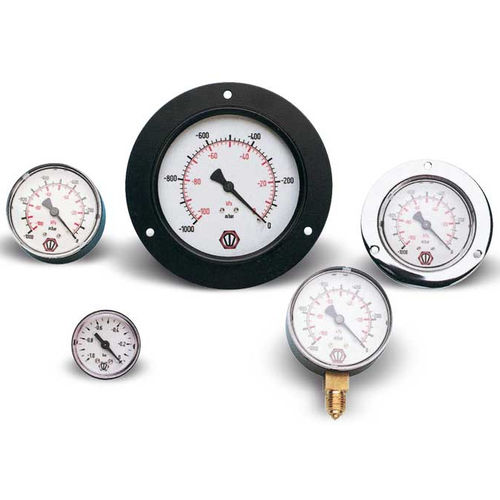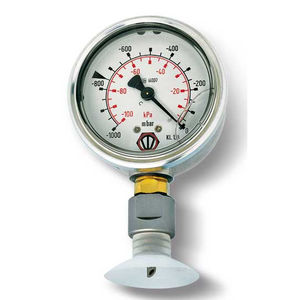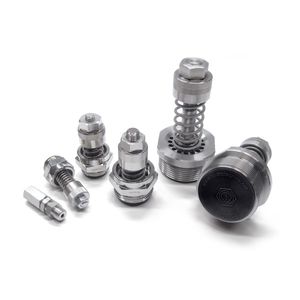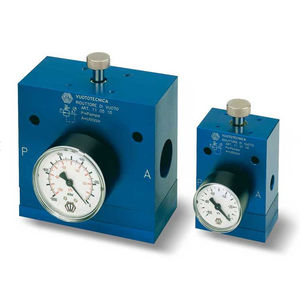
- Company
- Products
- Catalogs
- News & Trends
- Exhibitions
Bourdon tube vacuum gauge 090315dial
Add to favorites
Compare this product
Characteristics
- Technology
- Bourdon tube
- Display
- dial
- Vacuum range
Max.: 1,000 mbar
(14.503773773 psi)Min.: 0 mbar
(0 psi)
Description
The measurement method of our vacuum gauges is based on the principle of the Bourdon spring (Eugène Bourdon, France, 1808–1884).
It is made using section tubes in special copper alloy, one end is welded to the threaded pin of the vacuum-pressure gauge, thus forming a single body with it, while the other closed end is free As the vacuum or the pressure inside increases, it tends to shift from the initial position (Bourdon effect). The movement of the free end of the spring determines the vacuum-pressure measurement. In order to allow an easier reading, this movement is amplified by means of a connection lever and transmitted to the pointer.
All is enclosed in a sturdy metal casing which contains the dial and the pointer, that can be seen through a glass. They are available in various versions, with coaxial or radial connectors, with built-in or external flange, dry or glycerine filled. Except for vacuum gauges with diameter Ø 40 mm, all the other models have a double scale dial.
All the vacuum and pressure gauges we will describe in these pages are made in compliance with all the safety standards and measurement units in force in the European Union.
Catalogs
No catalogs are available for this product.
See all of VUOTOTECNICA‘s catalogsOther VUOTOTECNICA products
Vacuum measurement, control and adjustment instruments
Related Searches
- Vacuum sensor
- Vacuum switch
- Pressure and vacuum switch
- Analog vacuum sensor
- Electronic vacuum switch
- Mechanical vacuum switch
- Adjustable vacuum switch
- Vacuum regulator
- Gas vacuum switch
- Compact vacuum switch
- Gas pressure and vacuum switch
- Compact pressure and vacuum switch
- Digital pressure and vacuum switch
- Digital vacuum switch
- Electronic pressure and vacuum switch
- Mechanical vacuum gauge
- Vacuum switch for pneumatic applications
- Miniature vacuum switch
- NC vacuum switch
- Pressure and vacuum switch with display
*Prices are pre-tax. They exclude delivery charges and customs duties and do not include additional charges for installation or activation options. Prices are indicative only and may vary by country, with changes to the cost of raw materials and exchange rates.














